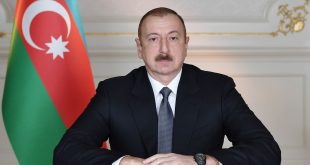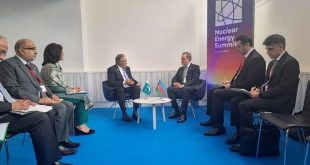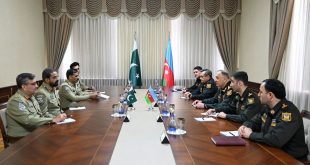It is a historical fact that India had illegally occupied Jammu and Kashmir by landing its troops in Srinagar on 27th October, 1947 against the wishes of the Kashmiri people and in total disregard to the Partition Plan of the Indian subcontinent that had resulted in the formation of two new independent counties Pakistan and India.
At the end of British suzerainty over Indian sub-continent in 1947, more than 550 Princely States had become independent but with a choice to accede either to Pakistan or India. Being a Muslim-majority state, Jammu and Kashmir had a natural tendency to accede to Pakistan, but the evil designs of its Hindu ruler and the leaders of Indian National Congress and Britain destroyed the future of the people of the territory thus sowing the seeds of the Kashmir dispute. The people of Jammu and Kashmir strongly resisted the Indian occupation and launched a mass struggle, liberating a vast area now known as Azad Jammu and Kashmir.

Their resilience brought India at the verge of defeat and it sought the help of the international community to settle the Kashmir dispute. On 1st January 1948, New Delhi approached the United Nations Security Council, which in its successive resolutions – accepted by both Pakistan and India – promised holding of a free and impartial plebiscite under the UN-supervision to enable the Kashmiri people to decide their future themselves.
These UN resolutions and the pledges made by the Indian leadership remain unimplemented even after the passing of several decades. Pakistan and people of Kashmir share strong bonds in respect of religion, geography, culture and aspirations. Since 1947, India’s brutal occupation has been the cause of continued sufferings of the people of Jammu and Kashmir. Due to the atrocities of Indian troops, hundreds of thousands of Kashmiri people have migrated to Pakistan from the occupied territory and the main driving force behind their movement has been their strong emotional attachment to the country.
The passing of a resolution by the genuine representatives of Kashmiris in the meeting of Muslim Conference Jammu and Kashmir in Srinagar on 19th July 1947 is a strong evidence of the ideological commonality between Pakistan and Jammu and Kashmir. The people of occupied Kashmir have time and again showed their attachment with Pakistan by raising the slogans of “Long Live Pakistan” and “We Want Pakistan.” They hoist Pakistani flags on the national days of the country and during anti-India demonstrations, whereas they observe such days of India as black days. Wrapping their martyrs in Pakistani flags before burial is a common practice of the Kashmiris. The matter of fact is that both Pakistanis and Kashmiris consider the Kashmir dispute as an unfinished agenda of the partition of the South Asian sub-continent in 1947 and the liberation struggle of the people of Jammu and Kashmir as an inseparable part of Pakistan Movement.
India has exhausted all its resources during the past over seven decades but has miserably failed to intimidate the people of Jammu and Kashmir into submission and efface their love for Pakistan from their hearts.
Since 1989, when the people of occupied Kashmir intensified their freedom struggle, the Indian forces’ personnel enjoying unbridled powers under the protection of draconian laws like Armed Forces Special Powers Act and Disturbed Areas Act in the occupied territory have martyred over ninety-four thousand Kashmiris, widowed more than twenty-two thousand women, orphaned not less than one hundred thousand children and molested or gang-raped more than eleven thousand Kashmiri women. While the whereabouts of thousands of innocent youth subjected to disappearance in custody remain untraced, the shocking discovery of thousands of mass graves across the occupied territory has raised concerns about the safety of the disappeared persons.
The extrajudicial murder of popular youth leader, Burhan Muzaffar Wani, on July 8, 2016 by the Indian troops provided a fillip to the Kashmiris’ freedom movement. So far, 172 civilians have been killed and 20,765 injured in the firing of pellets, bullets and teargas shells on the demonstrators. More than 280 youth have lost their one or both eyes to the pellet injuries while around 1,000 are at the verge of losing their eyesight. Hundreds of people including Hurriyat leaders have been put behind the bars. However, all these brutalities could not suppress the Kashmiris’ resolve and they are committed to take their ongoing liberation movement to its logical conclusion at all costs.
Kashmir is a nuclear flashpoint as it involves two nuclear-armed neighbours, Pakistan and India. It is the responsibility of the world community to realize the sensitivity of the matter. It must take cognizance of the fact that due to India’s unrealistic and intransigent attitude, the peace and stability of the entire South Asia are at stake. The resolutions of the UN should not be desecrated and the human rights violations by India should not be overlooked. 5th February is a reminder, a stark reminder! It should give message to the people of Jammu and Kashmir that they are not alone in their just struggle and not only Pakistan, but the entire peace and justice-loving community of the world is with them.
Senior Editor of Kashmir Media Service/Islamabad Muhammad Raza Malik
 Oval Useful news from Azerbaijan and Caucasus
Oval Useful news from Azerbaijan and Caucasus


